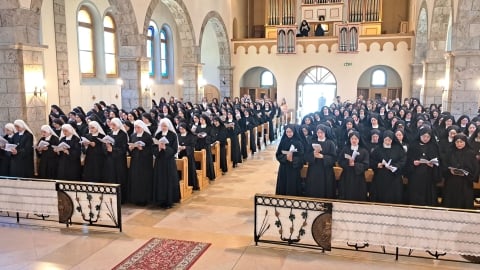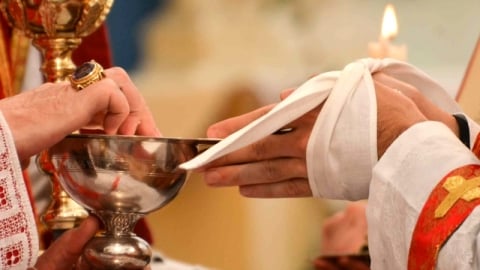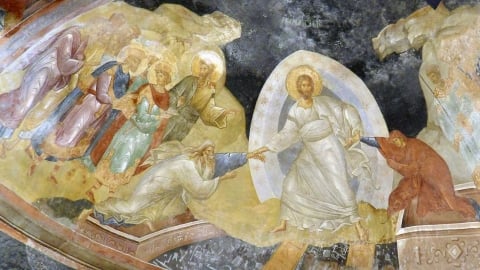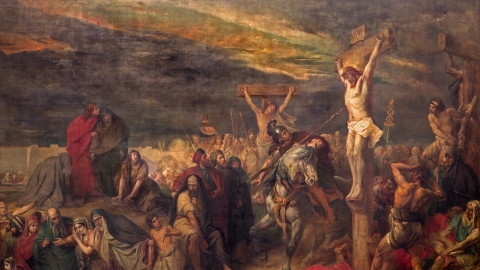Liturgy: Tenth Sunday after Pentecost - The Publican and the Pharisee
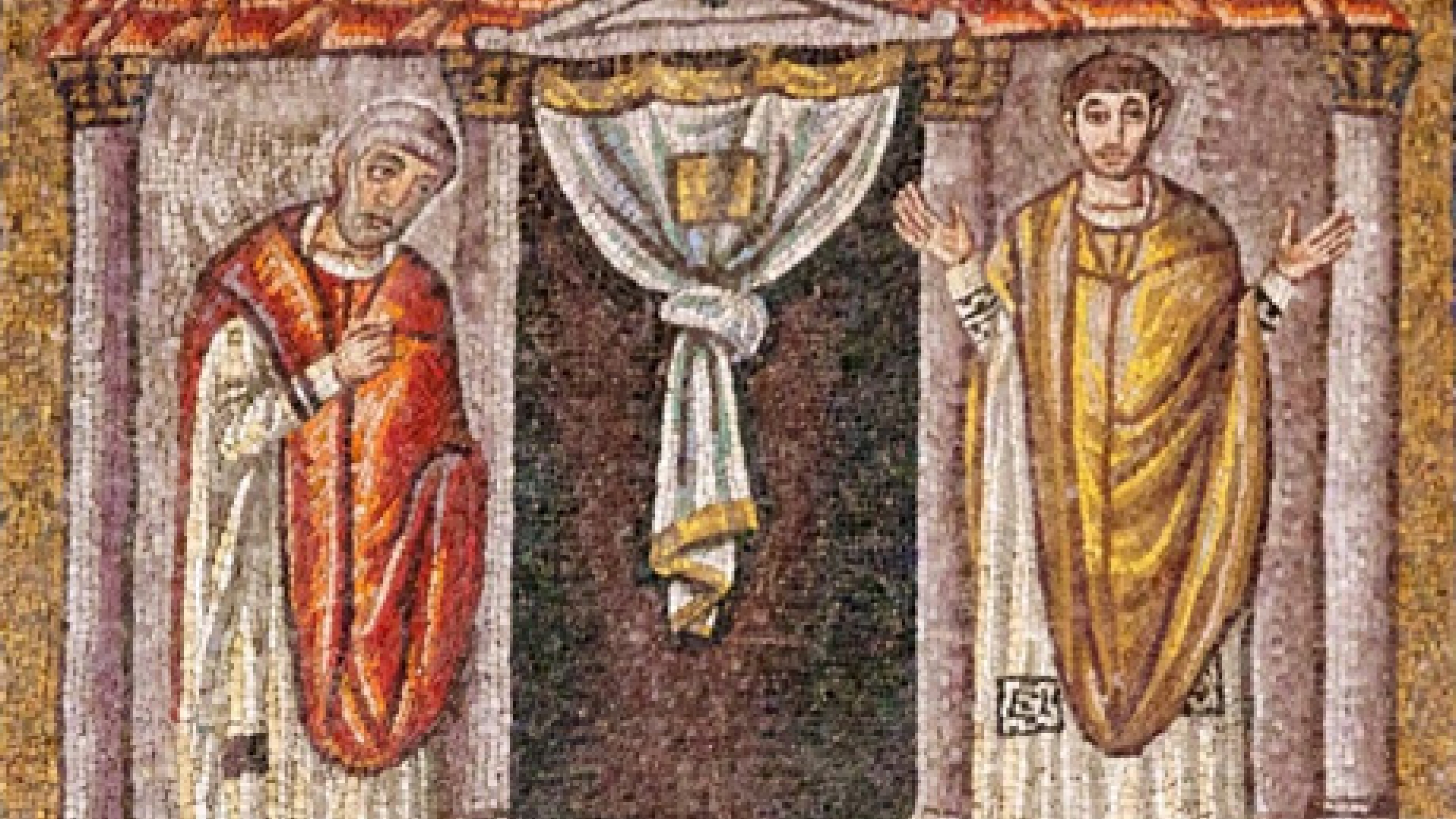
Byzantine mosaic of the parable described in this week's liturgy
The liturgy seeks to impress upon us the notion of Christian humility, which consists in attributing to the Holy Ghost whatever sanctity we may have attained.
Our acts can only be of a supernatural character if they are inspired by the Holy Ghost whom our Lord sent down upon His apostles on the day of Pentecost and whom He never ceases to give to those who ask.
Our salvation is an impossible task if we try to accomplish it alone, for left to ourselves, we are but weak and sinful. It is almighty God to whom we are indebted when we avoid sin, gain pardon, forsake wrongdoing and do good, for none can even utter our Lord's name by an act of supernatural faith, affirming His divinity and kingship, except by the Holy Ghost (Epistle).
Therefore pride is God's enemy, since it claims for itself the gifts which the Holy Ghost alone distributes to such as He will, and so by making us think that we are sufficient in ourselves, it hinders the manifestation of the divine power in our souls. How can God forgive us (Collect), if we will not confess our guilt? How can He have compassion on us, and show us His mercy (Collect) if we have within us no acknowledged wretchedness upon which His divine heart can have pity? On the contrary, the humble man is glad to acknowledge his nothingness, knowing that on this condition alone will the power of Christ come into his heart.
In contrast to the Pharisee’s pride, the humility of the Publican is remarkable: “His conscience overwhelms him but hope raises him up. ‘He struck his breast, saying: O God be merciful to me a sinner!’ Here is a man who prays” (St. Augustine).
Source: Dom Gaspar Lefebvre, OSB, 1945, adapted and abridged.
